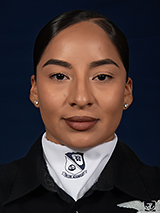Blue Angels Team
TEAM | ENLISTED
The Blue Angels' enlisted maintenance and support team is comprised of approximately 100 Sailors and Marines. Alternating crews of about 45 team members travel to each show site. All career-oriented enlisted Sailor or Marine applicants come recommended for Blue Angel duty by their current commanding officer. Applicants go through extensive screening, including interviewing with the members of each of the 15 squadron work centers. The keen selection process secures the squadron's tradition of excellence, ensuring the Blue Angels are a direct reflection of the professionalism of today's Sailors and Marines. After completing their Blue Angel tour, individuals return to the fleet to continue their naval careers.
Selected enlisted personnel volunteer for a three-year tour with the squadron. Though every team member brings skills in a distinct job specialty, each is expected to work beyond that specialty, contributing to the overall effectiveness of the Blue Angels. The squadron consists of seven distinct departments, jointly responsible for guaranteeing command readiness. A tribute to this dedicated team is the fact that the Blue Angels have never canceled an air show due to a maintenance problem.
CMDCM MATTHEW DAWSON | USN
// Command Master Chief

Command Master Chief Matthew Dawson is a native of Racine, Wisconsin. He enlisted in the Navy in June of 1999 and attended recruit training at Naval Station Great Lakes, Illinois. After graduation, he attended Naval Aircrew Candidate School and then Hospital Corpsman "A" School.
Matthew joined the Blue Angels in September 2023. He has accumulated over 1,000 hours in various rotary- and fixed-wing naval aircraft. His decorations include the Meritorious Service Medal, Strike/Flight Air Medal (two awards), Navy and Marine Corps Commendation Medal (four awards), Army Commendation Medal, Navy and Marine Corps Achievement Medal (seven awards), Army Achievement Medal, Military Outstanding Volunteer Medal and various unit and campaign awards. He is also a recipient of the American Red Cross Certificate of Merit and Red Cross Hero Award for lifesaving actions.
FULL BIO HI-RES PHOTOMAINTENANCE MASTER CHIEF
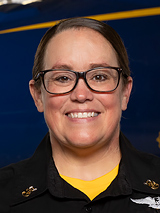
AFCM (AW/SW/IW)
Sara Heady
Master Chief Heady was born in Moultrie, Georgia and enlisted in the United States Navy in August 1998. Following completion of basic training at Recruit Training Command, Great Lakes, Illinois she reported to Naval Training Center, Great Lakes, Illinois where she completed airman apprenticeship training...
FULL BIOCHIEF PETTY OFFICERS & GUNNERY SERGEANTS
The squadron's senior enlisted Navy and Marine Corps personnel ensure day-to-day operations while providing key leadership, guidance, and training to enlisted personnel in the areas of maintenance, logistics, public affairs, and administration.
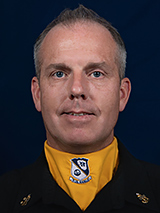
AMCS (AW)
Jeromy Watts
Maintenance Chief
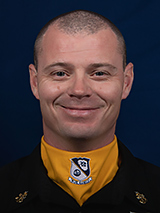
ATCS (AW/SW)
Jerad Mefferd
Maintenance Chief
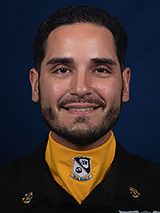
AEC (AW)
Jonathan DeJesus
Maintenance Chief
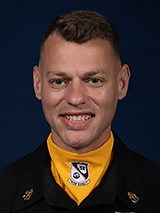
AEC (AW)
Gregory Dungey
Maintenance Chief
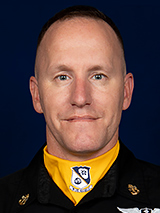
AMC (AW/SW)
Dana Foley
Maintenance Chief
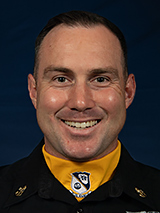
ATC (AW/SW)
Paul Helm
Maintenance Chief
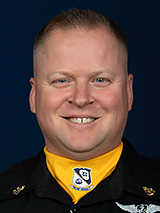
LSCS (AW/SW)
Bill Kelly
Logistics Chief
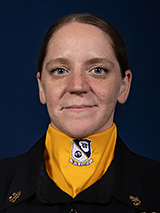
AZC (AW)
Kerry Koepke
Maintenance Chief
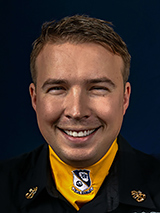
MCC (AW/SW)
Conor Minto
Public Affairs Chief
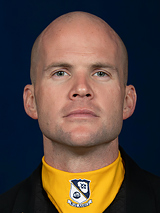
AMC (AW)
Brad Powell
Maintenance Chief
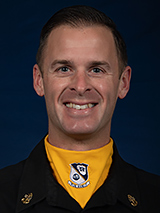
AOC (AW/SW)
Taylor Craig
Maintenance Chief
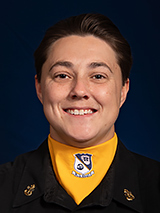
YNC (AW/SW/IW)
Felicia Swaner
Administration Chief
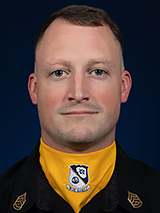
GySgt | USMC
Luke Travis
Maintenance Gunny
FAT ALBERT AIRLINES
The all-Marine flight crew assigned to the squadron's Lockheed-Martin C-130 J Super Hercules is responsible for transporting road-crew personnel, supplies, and equipment to and from each show site throughout the season.
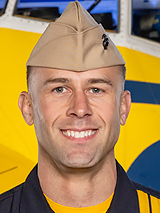
MSgt | USMC
Brandon Wishard
Fat Albert Flight Engineer
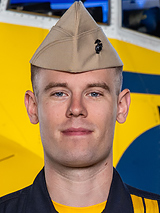
SSgt | USMC
Dylan Frank
Fat Albert Flight Engineer
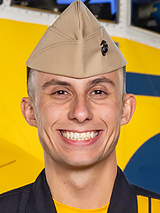
SSgt | USMC
Ryan Frey
Fat Albert Flight Engineer
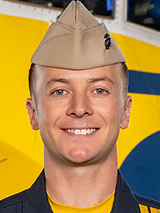
GySgt | USMC
Colin Handlen
Fat Albert Flight Engineer
FAT ALBERT MAINTENANCE
The Fat Albert Maintenance work center maintains the airframe, life support, engine, hydraulic and avionics systems of the Blue Angels C-130 J Super Hercules aircraft, Fat Albert.
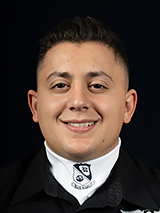
SSgt | USMC
Joseph Gunther
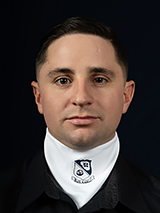
Sgt | USMC
Bailey Dorr
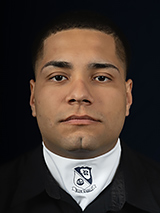
Sgt | USMC
Michael Farthing
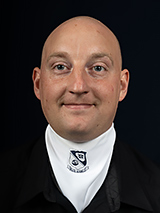
SSgt | USMC
Jordan Futrell
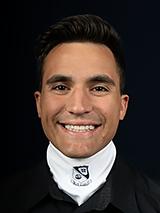
Sgt | USMC
Bryan Riquier
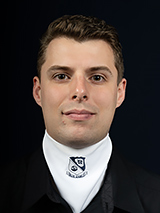
Sgt | USMC
Benaiah Smith
CREW COORDINATORS
The Crew Coordinators are selected from the team after their first year and can be E-6 personnel in any rate. They are responsible for the overall training of the maintenance and support team on all the squadron procedures, and they coordinate ground operations necessary to facilitate a Blue Angels performance.
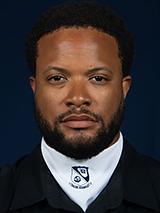
AT1 (AW/SW)
Cameron Myers
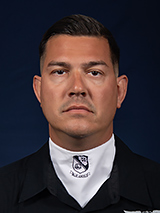
AM1 (AW/SW)
Tony Muñoz
ADMINISTRATION
The Administration department is responsible for executive and official correspondence, squadron records, pay, and travel orders. Administration maintains instructions and notices, handles promotions and awards, and controls legal and security concerns.
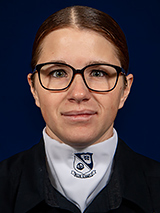
YN1 (SW)
Danielle Williams
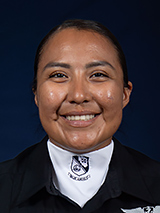
YN2 (AW)
Kris Begay
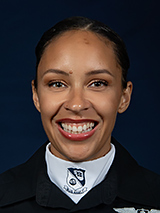
PS1 (AW)
Amanda Stampley
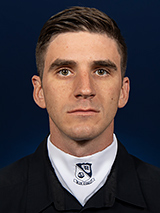
NC1 (SW/FMF)
Jacob Stansbury
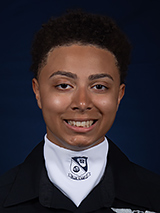
YN2 (AW/SW)
Naiya Shaw
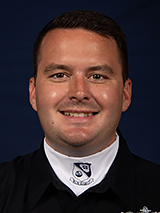
YN1 (IW)
Dakota Taylor
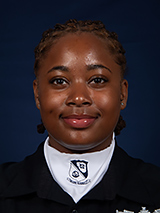
YN2 (SW)
Terria Watley
AIRFRAMES
The Airframes work center comprises Navy Aviation Structural mechanics and Marine Corps F/A-18 fixed-wing aircraft airframe mechanics specializing in hydraulics and aircraft structure. These personnel maintain flight controls, hydraulic systems, landing, arresting and catapult gear, and perform composite/sheet metal structural repairs of the F/A-18 Super Hornet. During the air show season, an airframes representative accompanies the C-130 crew as a safety observer in the Fat Albert portion of the flight demonstration.
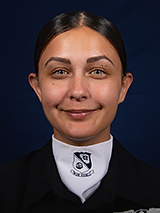
AM1 (AW)
Katie Casabar
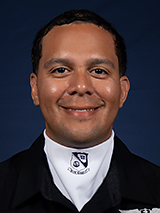
AM1 (AW)
Eliezer Baez
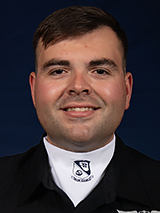
AM1 (AW)
Austin Castner
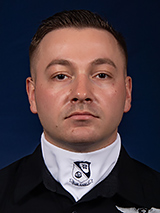
AM2 (AW)
Kyler Carpenter
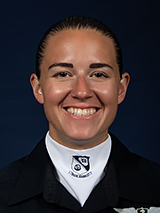
AM1 (AW/SW)
Jenna Lucas
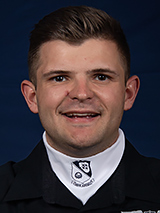
AM2 (AW)
Kyle Newton
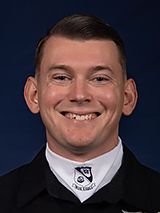
Sgt | USMC
Andrew Stiltner
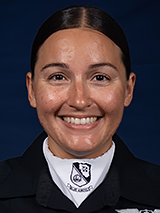
AM1 (AW)
Kayleigh Temple
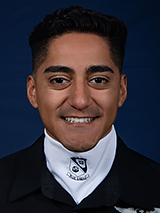
SSgt | USMC
Alex Verduzco
AVIATION MEDICINE
The Aviation Medicine Department is responsible for the health and wellness of each team member. The medical team performs annual physical examinations and emergency medical procedures, keeps medical and dental readiness up to date, and acts as a liaison for advanced medical care.
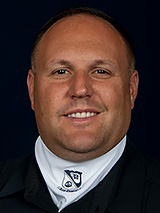
HM1 (AW/FMF)
Brandon Crawford
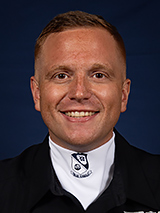
HM1 (AW/SW/FMF)
Anthony Tharp
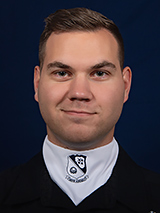
HM2 (FMF/NAC)
Justin Spence
AVIONICS
Navy Aviation Electronics technicians and Aviation Electricians, as well as Marine Corps F/A-18 aircraft electrical systems technicians and squadron aircraft communications/navigation radar systems technicians comprise the Avionics work center. They are responsible for the performance of scheduled and unscheduled maintenance and timely troubleshooting of F/A-18 and C-130 electronic flight controls, communication, navigation, radar, mission computers, display systems and fuel quantity.
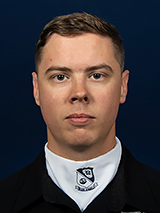
AE1 (AW)
Luke Sons
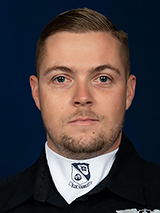
AE2 (AW)
Kyle Beck
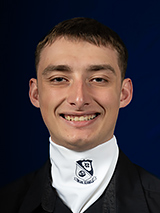
AT2
Douglas Kramer
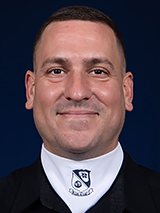
AT1 (AW)
Hunter Lumley
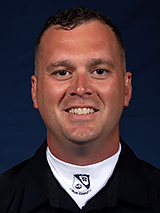
AE1 (AW)
Ryan Mouser
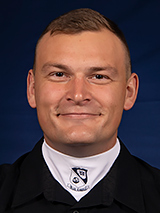
AT1 (AW)
Nathan Reichard
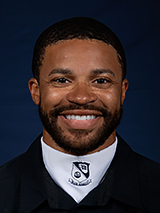
AT2 (AW)
Tabyus Robinson
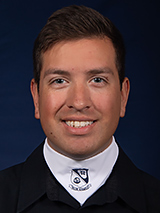
AT2
Trent Walker
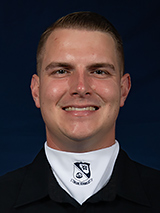
Sgt | USMC
Kevin Zabojnik
CREW CHIEFS
The Crew Chiefs work center is composed of Navy and Marine Corps maintenance technicians in various aviation specialties. Two crew chiefs are assigned to each pilot, and they are responsible for performing engine turn-up operations and flight controls/instruments checks, as well as daily turn-around and preflight inspections of the aircraft. Each crew chief goes through extensive training to get a working knowledge of the aircraft and its systems.
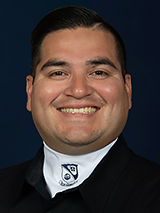
AD1 (AW)
Aaron Gutierrez
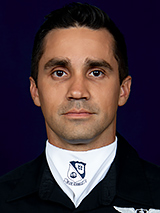
AS1 (AW/SW/EXW)
Kirk Coco
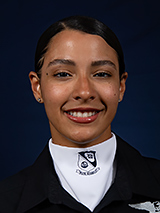
AM2 (AW)
Ashley Del Orbe
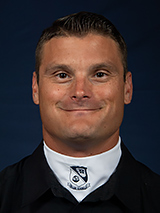
AT1 (AW)
Jerry Fain
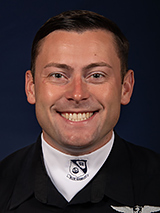
AM2 (AW)
Cody Farrell
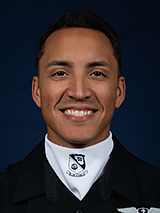
PR2 (AW)
Jose Figueroa
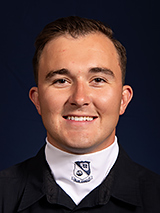
AO2 (AW)
Joshua Lewis
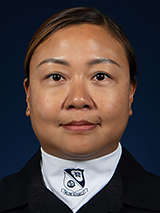
AM2 (AW)
Chui Ying Ma
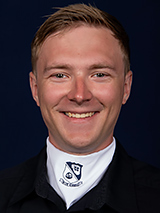
Sgt | USMC
Noah Mackiewicz
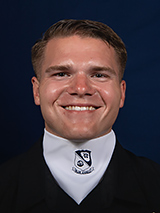
AT2 (AW)
Chris Parr
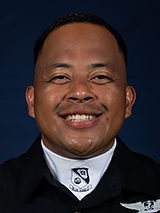
AS1 (AW/SW)
Sammy Quinene
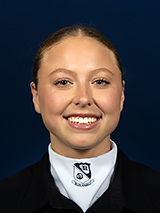
AT2 (AW)
Olivia Rauer
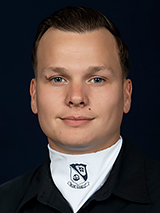
SSgt | USMC
Zach Summers
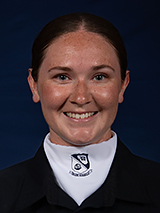
AT2 (AW)
Courtney Thompson
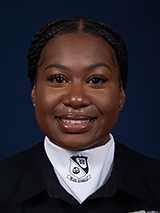
AT2 (AW)
Faith Wooten
EVENTS
The Events office schedules preseason visits with show site sponsors and secures accommodations and ground support for each air show. Events personnel also create all air show schedules and coordinate team commitments, including school and hospital visits, and manage the Blue Angels Key Influencer rider program.
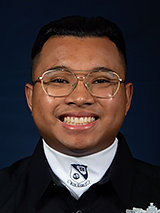
YN1 (SW)
Justin Asuncion
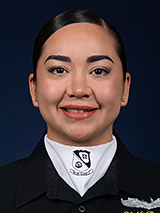
YN1 (SW)
Betzy Recinos
LIFE SUPPORT
The Life Support work center comprises Navy Aviation Structural Mechanics - Safety Equipment technicians and Aircrew Survival Equipment technicians. They maintain and repair the systems that support the life of the pilot in normal and emergency situations. These systems include air conditioning, avionics cooling, heating, liquid oxygen, and canopy and ejection seat emergency escape systems. They also maintain the personal flight gear the pilots must wear, such as helmets, oxygen masks, inflatable flotation devices, and ejection seat flight harnesses.
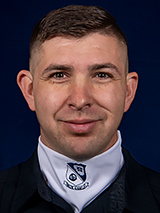
AME1 (AW)
Bret Lynch
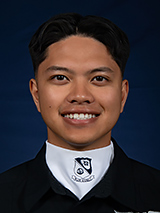
AME2 (AW)
Jasper Enriquez
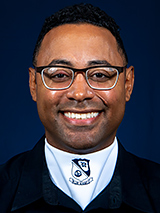
PR1 (AW)
Brandon Gatewood
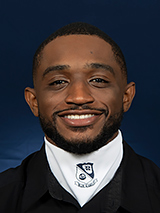
PR2 (AW)
Darren Johnson
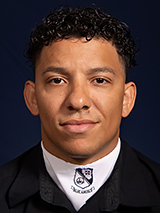
PR1 (AW)
Jordan Norris
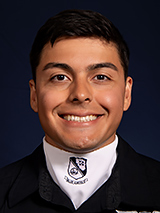
AME2 (AW)
Alex Pineda
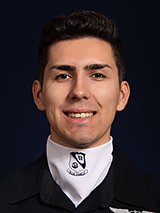
AME2 (AW)
Brandon Rehkop
LOGISTICS
The Logistics Department researches, procures, stores, and dispatches spare parts, tools, and uniforms. Logistics personnel also research future squadron logistical needs, and initiate contracts for services required to support daily operations.
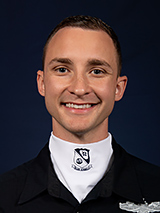
LS1 (AW/SW)
Blake Thompson
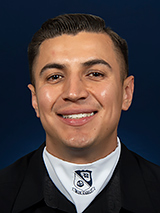
LS1 (AW/SW)
Christian Antunez
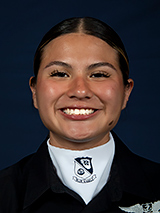
LS1 (AW/SW)
Briana Barrientos
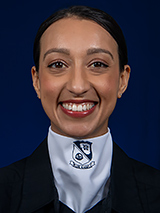
LS1 (AW/SW)
Masha Burger
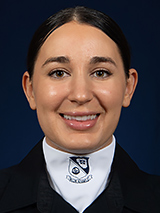
LS1 (AW/SW)
Crystal Gillespie
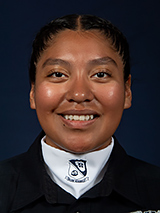
LS2 (AW)
Jennifer Hernandez
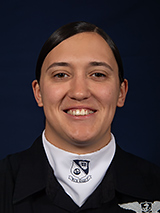
LS2 (AW)
Alisea Meza
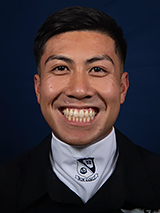
LS1 (AW)
Renei Pamintuan
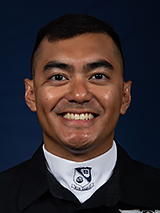
LS1 (SW)
Nigel Pasague
MAINTENANCE CONTROL
The Maintenance Control work center is comprised of mostly Navy Aviation Adiminstrationman with select First Class Petty Officers of other aviation ratings. They manage aircraft maintenance and technical support for the squadron's assigned aircraft and maintenance personnel. They coordinate, direct and manage scheduled and unscheduled maintenance on squadron aircraft and ensure aircraft records are accurate.
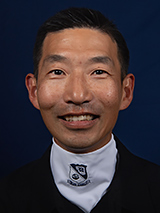
AZ1 (AW)
David Kim
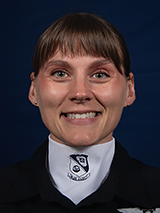
AZ1 (AW)
Hannah Jeffery
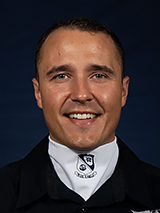
AM1 (AW)
Tristan Lafferty
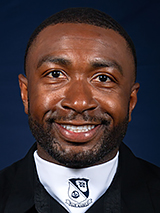
AZ1 (AW)
Devin Mosley
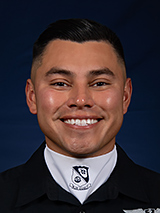
SSgt | USMC
Alex Portillo
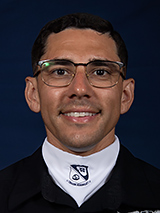
AZ1 (AW/SW)
Joseph Sepulveda
PAINT SHOP
The Paint Shop work center is composed of maintenance technicians from various aviation ratings. Team members assigned to the Paint Shop are responsible for painting operations, corrosion control, and corrosion removal on the F/A-18 Super Hornet and Fat Albert, the C-130 transport aircraft.
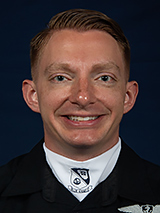
AM1 (AW)
Alex Rodriguez

AT2 (AW)
Hamilton Barton
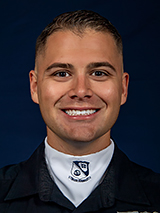
AO2 (AW/SW)
Marcos Ivey
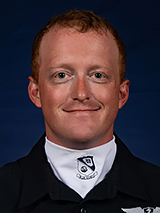
AM2 (AW)
Nathan Mazdra
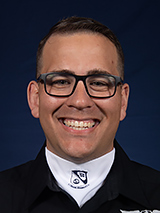
AE2 (AW)
Adrian Rusnell
POWER PLANTS
The Power Plants work center is composed of Navy Aviation Machinist Mates and Marine Corps F/A-18 and C-130 fixed-wing aircraft mechanics. Power Plants personnel adjust, maintain, replace and service Blue angel aircraft engines, accessories and fuel and smoke systems. They also maintain the secondary power systems of the F/A-18 Super Hornet, which allows the aircraft to be started anywhere, without external power.
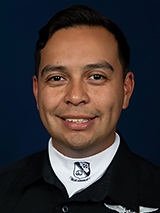
AD1 (AW)
Jose Sanchez
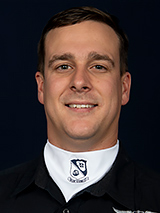
AD1 (AW)
Dustin Beck
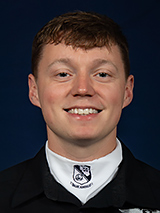
AD1 (AW)
Avery Collins
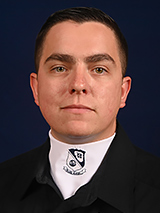
AD1 (AW)
John Funescruz
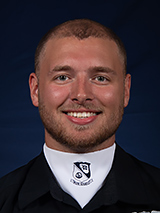
AD2
Austin Sanks
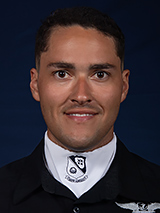
AD1 (AW)
Thomas Still
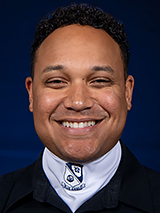
AD1 (AW)
Helbert Urrutia Jr.
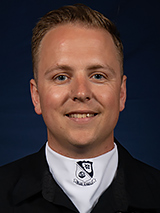
AD1 (AW)
Bryce Waterman
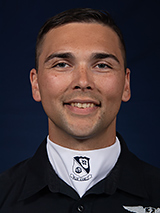
AD1 (AW/SW)
James Wible III
PUBLIC AFFAIRS
The Public Affairs Office documents and promotes the Blue Angels. It designs, writes, photographs, edits, publishes and distributes news and promotional materials for the squadron. The Public Affairs Office also coordinates promotional coverage and interviews with local, national and international media, and manages the Blue Angels VIP rider program.
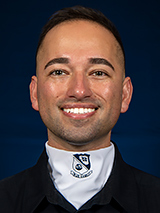
MC1 (AW/SW)
Terrin Hartman
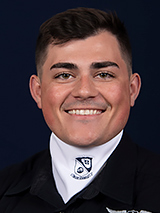
MC2
Crayton Agnew
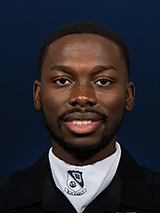
MC2 (AW/SW)
Michael Mensah
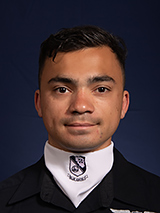
MC2 (SW/NAC)
Maxwell Orlosky
QUALITY ASSURANCE
The Quality Assurance work center is composed of maintenance technicians in various aviation ratings. These individuals administer and prepare maintenance instructions, review incoming technical directives, and participate as members of a technical task force that investigate trouble areas in fleet-wide aircraft maintenance. They also supervise and inspect the squadron's aircraft maintenance regime and regularly complete audits on work centers for specific maintenance programs.
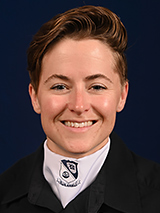
AE1 (AW)
Chelsea Kendrick
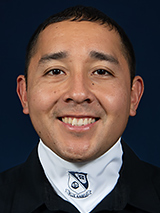
AD1 (AW)
Lorenzo Arevalo
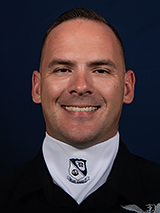
AM2 (AW)
Spencer Graybill
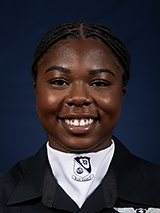
AZ2 (AW)
Jada Jackson
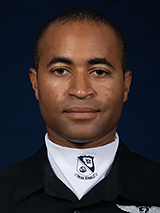
AT1 (AW)
Mychael Kisling
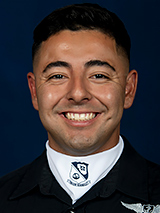
AZ2 (AW)
Diego Solorzano
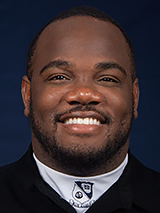
AME1 (AW)
Tredino Taylor
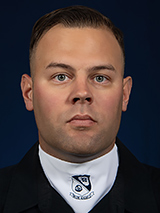
AD1 (AW)
Richard Wiese
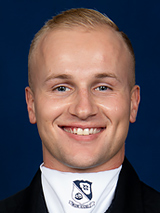
AM1 (AW)
Gabe Whisman
VIDEO
The Video work center comprises Navy and Marine Corps maintenance technicians in various aviation specialties. The personnel are responsible for filming each training flight and flight demonstration for use by the pilots during debrief. They also maintain the communications cart, which allows support officers to communicate with the pilots during flight, and they simulcast the demonstration music and narration.
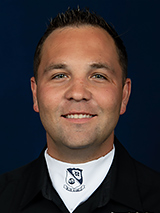
AE1 (AW/SW)
Oleg Berenzon
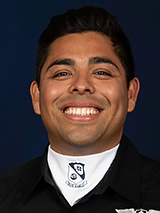
AE1 (AW)
Ryan Hernandez
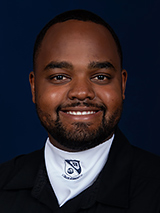
AT2 (AW)
Michael Patterson III
